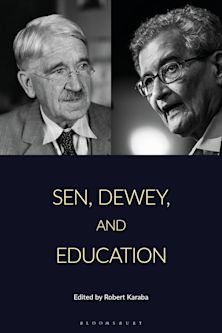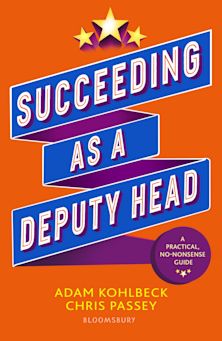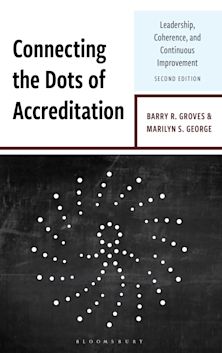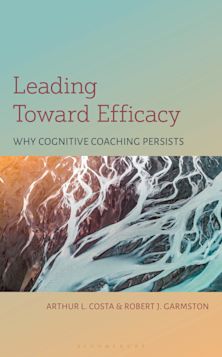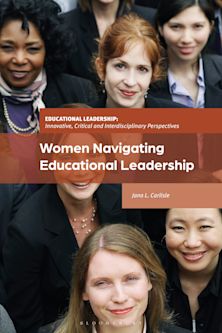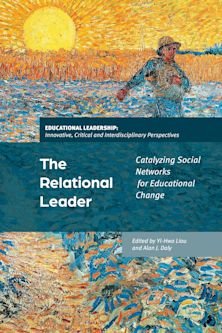- Home
- ACADEMIC
- Education
- Leadership and Management
- Cultural Differences in Educational Leadership
Cultural Differences in Educational Leadership
Lessons from Heaven's Messengers, Melting Pot or Not!
Cultural Differences in Educational Leadership
Lessons from Heaven's Messengers, Melting Pot or Not!
This product is usually dispatched within 1 week
- Delivery and returns info
-
Free CA delivery on orders $40 or over
You must sign in to add this item to your wishlist. Please sign in or create an account
Description
Leaders and aspiring leaders from all over the world are constantly searching for role models who are successful in placing leadership theory into effective practice. This book identifies ten such role models whose heroic leadership behavior is analyzed in order to reveal what particular abilities and skills made them successful in their particular society and culture and how those attributes can be applied to one’s own leadership practice, whether that be as a classroom teacher, a principal, a superintendent of schools or a college president in the United States or elsewhere in the world.
Table of Contents
Chapter One: Contemporary Leadership Theory
Chapter Two: Leading with Heart
Chapter Three: Moses
Chapter Four: Gautama Buddha
Chapter Five: Confucius
Chapter Six: Jesus Christ
Chapter Seven: Muhammad
Chapter Eight: Mahatma Gandhi
Chapter Nine: Martin Luther King, Jr.
Chapter Ten: St. Pope John Paul II
Chapter Eleven: St. Mother Teresa
Chapter Twelve: Pope Francis I
Chapter Thirteen: What Have You Learned
Appendix: Diagnostics (Heart Smart Surveys I & II)
References
About the Author
Product details
| Published | Sep 30 2016 |
|---|---|
| Format | Hardback |
| Edition | 1st |
| Extent | 188 |
| ISBN | 9781475827279 |
| Imprint | Rowman & Littlefield |
| Dimensions | 239 x 157 mm |
| Publisher | Bloomsbury Publishing |
About the contributors
Reviews
-
Dr. Robert Palestini is more than a scholar in the field of educational leadership; he is one of its signature practitioners. His latest work should be required for professional educators at all levels. Cultural Differences in Educational Leadership: Lessons from Heaven’s Messengers, Melting Pot or Not! is equal parts timely and timeless. Dr. Palestini takes us on a most historic journey, an examination of the conscience and contributions of 10 of mankind’s most enduring figures. The lessons imparted are spiritual, transformational and essential, and the parallels to contemporary educational leadership are more than symbolic. This is important new ground, and we are proud to call Dr. Palestini one of our own.
Mark C. Reed, PhD, president, Saint Joseph's University
-
In Cultural Differences in Educational Leadership, Dr. Robert Palestini posed the question as to whether one’s society and culture requires a distinctive leadership style or that certain leadership principles transcend cultural differences and are effective with people from any part of the world. By studying the leadership styles of ten great religious and spiritual leaders ranging from Confucius, Jesus Christ and Muhammad to Martin Luther King, Jr., Mother Teresa and Pope Francis, Palestini concludes that these leaders have enlightening and useful stories to tell, whether one is a current or aspiring educational leader.
Weiping Wang, PhD, associate provost and executive director, The China Institute at Dayton University
-
In his latest book, Cultural Differences in Educational Leadership: Lessons from Heaven’s Messengers, Melting Pot or Not!, Robert Palestini supplements Lee Bolman and Terrence Deal’s model of situational leadership theory with an important frame — not always considered — to analyze the leadership behavior: the moral frame. In concrete, he uses the structural, human resource, symbolic, political, and moral frame to explore the leadership behavior and styles of ten spiritual and religious leaders — such as Moses, Buddha, Confucius, Jesus Christ, Muhammad, and even Pope Francis! — because he considers they have had an important and lasting impact in societies of East and West. In my opinion, the moral frame is crucial, since from a religious or theological perspective the main issue is not only believing or not believing in God, but in the values supported by the eventual witness or spokesperson of God. What are the values prioritized by the leader? This is a relevant question for those who want to live with sense and with a reasonable ethic, in a global world where you are required to account for your options.
Rev. Fernando Verdugo, SJ, PhD, vice chancellor, Saint Alberto Hurtado University (Santiago, Chile)
-
The study of leadership has come a long way from the 'great man theory.' In his examination of ten great spiritual and religious leaders Dr. Palestini focuses on the transformational, situational and moral leadership qualities that ground current leadership theory and whether these qualities transcend societal differences. Current and aspiring educational leaders, regardless of background or culture, will benefit from reflection on the frames of leadership, emotional intelligence, and relationship-building practices of these highly effective leaders.
Sundar Kumarasamy, vice president for enrollment management, Northeastern University
-
Cultural Differences in Educational Leadership is a wonderful tutorial for enabling the formation and advancement of educational leaders in today's highly diverse global society. Dr. Palestini's case studies on the transformational, situational and moral leadership qualities of ten of the world's most influential spiritual and religious leaders of all time inspire the reader in seeing how the qualities transcend societal differences. Current and aspiring educational leaders alike will be enriched by their reflections on the leadership, emotional intelligence, and relationship-building practices of the leaders vividly presented in the case studies.
Stephan F. Hoffman, former Head of International Banking for the Board of Governors of the Federal Reserve System
-
Scholarly research has shown that there are leadership principles that transcend the idiosyncrasies of a particular society and culture. In Cultural Differences in Educational Leadership: Lessons from Heaven’s Messengers, Melting Pot or Not!, Dr. Robert Palestini profiles the leadership styles of ten great religious and spiritual leaders ranging from the past and present: Confucius, Jesus Christ and Muhammad to Martin Luther King, Jr., Mother Teresa and Pope Francis, to discern the commonalities in their leadership behavior that could be helpful in enhancing our own leadership styles no matter our culture and society. Dr. Robert Palestini posed the question as to whether one’s society and culture requires a distinctive leadership style or that certain leadership principles transcend cultural differences and are effective with people from any part of the world.
Hayat Khalil Hassan Nazar Heji, PhD, principal of Al-Noor Institute for the Blind in Doha, Quatar













